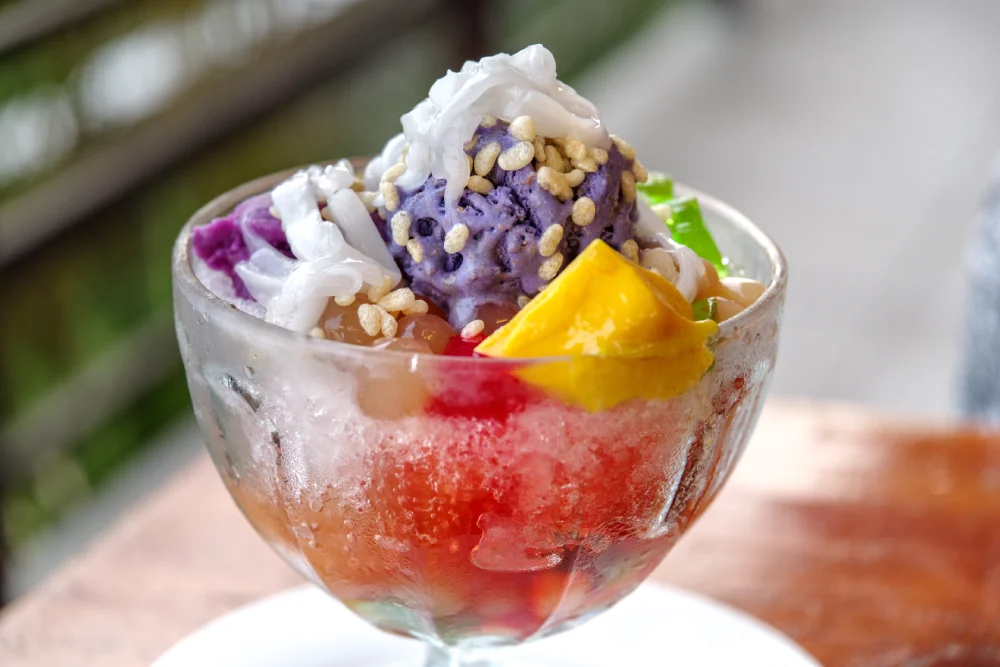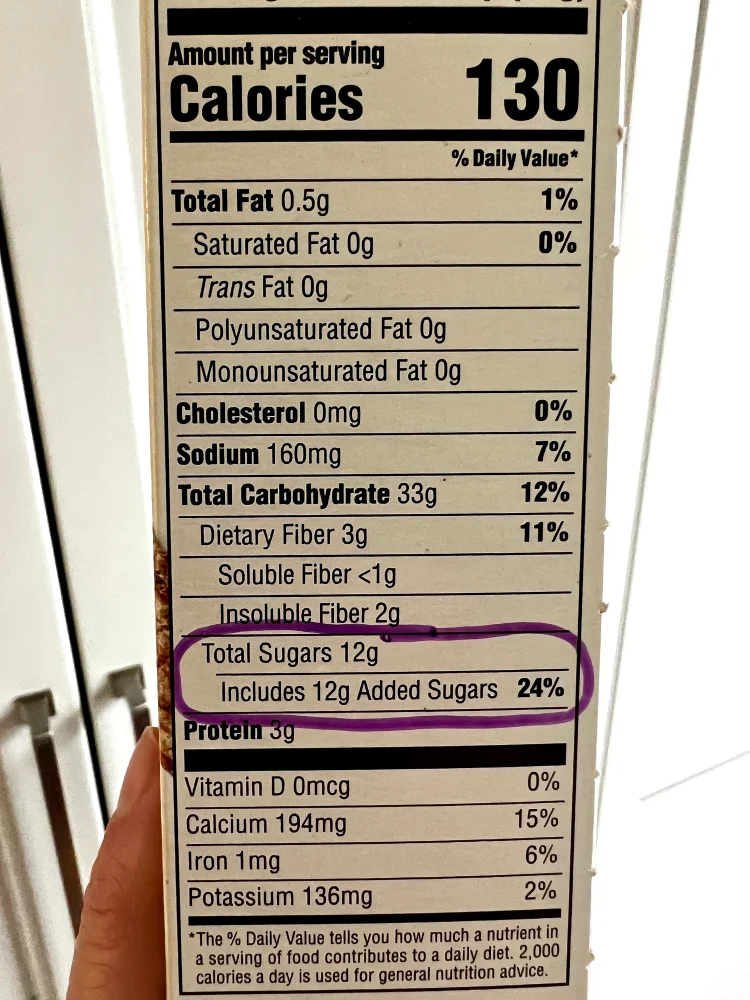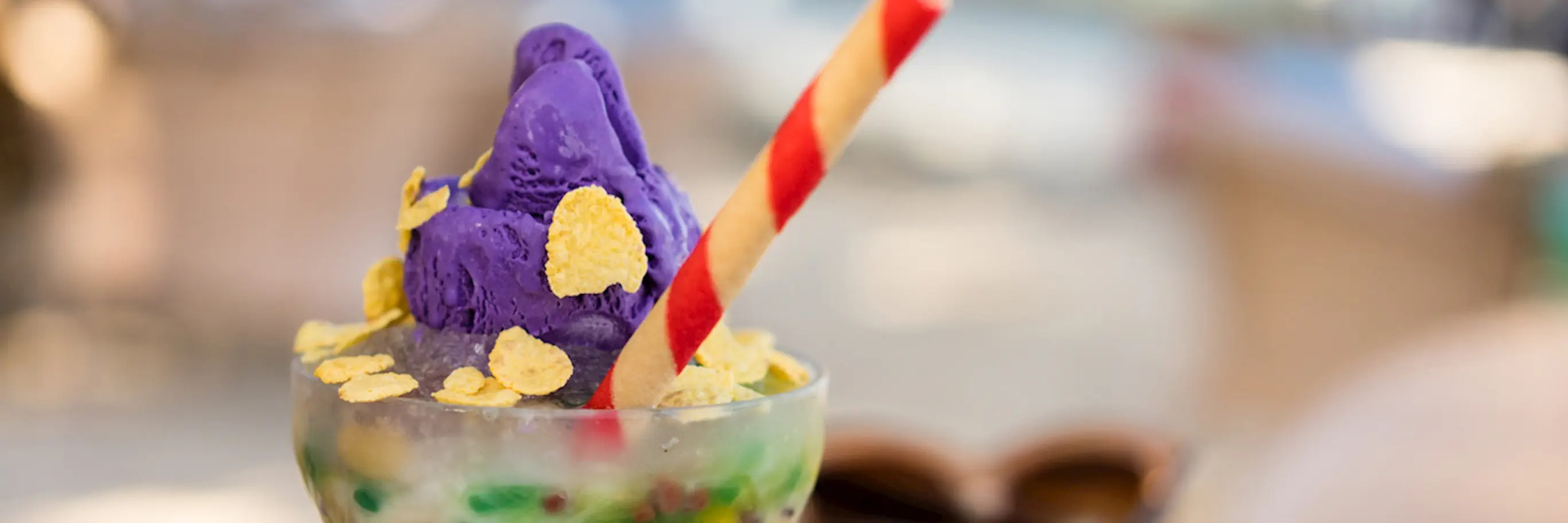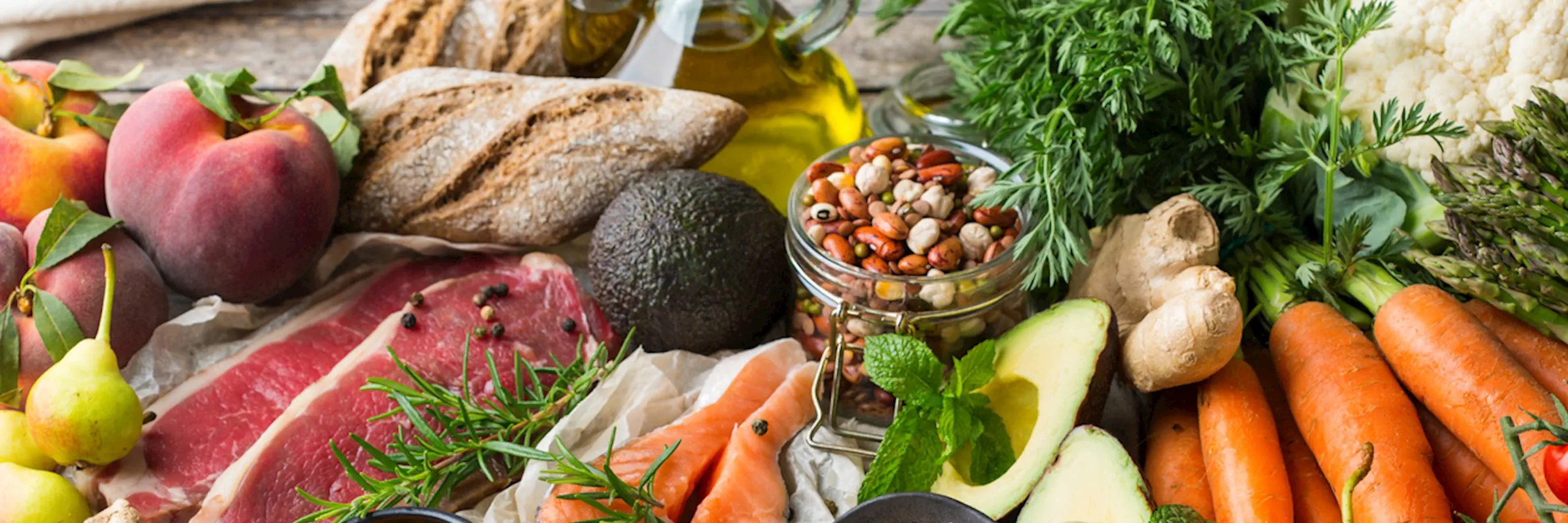
The Not-So-Sweet Truth behind Added Sugar in Your Diet
As Filipinos, our love for sweets is quite well known. We seem to have this ability to make sweet things even sweeter, like it’s a competition. And that extends to our diet. Even food not traditionally sweet tends to be – like spaghetti, ketchup, meat dishes. Wait, what?
Don’t even get us started on our desserts OMG! Like Halo-halo, that delightfully cold concoction made from shaved ice, milk, fruit and jellies swimming in sweet, syrupy goodness, or leche flan’s creamy decadence drenched in caramelized brown sugar, or sticky rice cakes covered in rich muscovado sugar and coconut cream. That’s enough to make your mouth water.

But that’s not the point.
So, today let's talk about something sweet – added sugar, that sneaky ingredient found in so many of our favorite foods and beverages. While a little sweetness can bring joy to our taste buds, too much can affect our health. From weight gain to an increased risk of chronic diseases, it's important to know what is sabotaging our healthy diets.
What exactly is Added Sugar?
Added sugar refers to any sweetener, such as white sugar, brown sugar, high fructose corn syrup, or honey, that is added to food and beverages during processing to enhance its flavor (such as sucrose or dextrose), foods packaged as sweeteners (such as table sugar), sugars from syrups and honey, and sugars from concentrated fruit or vegetable juices. You’ll find them in sugar-sweetened beverages, baked goods, desserts, and sweets.2
It's important to know that added sugar is different from natural sugar in their sources and how they're used in food. Natural sugar occurs naturally in foods like fruits and milk, where it’s found along with fiber, antioxidants, essential minerals and nutrients. Added sugar, on the other hand, adds extra calories and lacks other beneficial nutrients that foods with natural sugar have. Being mindful of their distinction helps us make healthier dietary choices.
How to spot added sugar on nutrition labels
Sugar shows up on nutrition labels as Total Sugar (or naturally occurring sugar) and Added Sugar which are added during the processing of food.

You can also identify added sugar on ingredients lists with these clues:
- Has syrup in the name (corn syrup, rice syrup)
- The word ends in “ose” (fructose, sucrose, maltose, dextrose)
- “Sugar” is in the name (raw sugar, cane sugar, muscovado sugar, brown sugar, confectionary sugar)
- Other examples of added sugar include fruit nectars, concentrates of juices, honey, agave and molasses.
How Added Sugar can affect your well-being
According to the Philippine Statistics Authority, Filipinos consume more than 13 tablespoons of sugar per day on average. That's nearly three times the recommended intake of 4 tablespoons1. Unfortunately, the abundance of added sugar in our diets has become a growing concern. Here are some of the risks associated with excessive sugar consumption:
- Weight gain and obesity
Now, we all have those moments where we indulge in a sugary treat, and that's totally fine. But when we consume added sugar in excess, it can lead to unwanted weight gain and even obesity. You see, sugar provides us with those empty calories, meaning they don't really give us the nutrition our bodies need. They can cause blood sugar levels to rise rapidly and then crash, leaving us feeling hungry, maybe even triggering those pesky overeating moments. Studies have shown a pretty strong connection between high sugar intake and increased body weight and waist circumference2.
- Increased risk of Type 2 Diabetes
Consuming too much sugar can contribute to insulin resistance, which is a key player in the development of Type 2 Diabetes. Basically, when we overload our bodies with sugar, our system starts to struggle with regulating blood sugar levels. This can lead to chronically elevated levels and increase our chances of developing diabetes down the line. Research has shown a link between high sugar consumption and a higher risk of developing this condition2.
- Cardiovascular health concerns
A diet that's high in added sugars can have a negative impact on our heart. Studies have shown a connection between high sugar intake and an increased risk of heart disease. It can also lead to high blood pressure, elevated triglyceride levels, and even higher levels of LDL cholesterol (you know, the not-so-nice one)4. It's not the sweet news we want to hear, but it's essential to know the facts to take care of our ticker.
- Dental issues
When we go overboard with sugary treats, it can put our teeth at risk. The bacteria in our mouths love to feast on sugar, and in return, they produce acids that can be harsh on our tooth enamel. Over time, this acid attack can lead to tooth decay, cavities, and other oral health troubles. Limiting that sugar intake can go a long way in protecting our smiles and keeping them shining bright5.
- Impact on mental health
The relationship between sugar and our mental well-being is a bit intricate. Some studies suggest that consuming too much sugar could play a part in mood swings, anxiety, and feelings of sadness6. It's like sugar might have a sneakier impact on our minds than we thought. Ongoing research is on the case, digging into how our sugar intake could be linked to our mental health.
Moderation and making informed choices

By now, we have learned that not all sugars are created equal. Naturally occurring sugars found in fruits and dairy products come bundled with essential nutrients and fiber, whereas added sugars provide no nutritional value. Here are a few tips to help you minimize the risks associated with added sugar:
- Read nutrition labels!
Become a habitual label reader and familiarize yourself with the many names for added sugars. This will allow you to make informed choices and select foods and beverages with less added sugar.
- Gradual reduction
Rather than going cold turkey, try gradually reducing the amount of added sugar in your diet. This allows your taste buds to adjust over time, and you'll start to appreciate the natural sweetness found in whole foods.
- Opt for whole foods
Focus on consuming whole, unprocessed foods that are naturally low in added sugars. Fill your shopping cart with fresh fruits, vegetables, whole grains, lean proteins, and dairy products without added sugars.
- Hydration without the sugar rush
Be mindful of sugar-laden beverages like soda, energy drinks, and fruity juices. Instead, choose water, herbal teas, or infuse your water with slices of fresh fruit for a naturally flavored and refreshing alternative.
- Treat sugar as a treat
Save sweet treats for special occasions rather than making them a daily indulgence. Enjoy them mindfully and savor the experience, knowing that balance is key when it comes to sugar.
Knowing the risks associated with added sugar is the first step towards making smart and healthier choices for yourself and your loved ones. Remember that moderation is key, and small changes in your habits can make a big difference in the long run. Let's nourish ourselves with the sweetness of life while keeping our health in mind.
Speaking of smart choices, while protecting ourselves from the health risks of added sugar, FWD Set for Health can protect you from the financial risks of critical illness if you get diagnosed with any of the covered 42 major and 9 minor critical illnesses or if the unexpected happens. Plus, you get your money back if you stay healthy until age 75. Learn more about FWD Set for Health and see if it’s the right plan for you.
Sources:
1 Philippine Statistics Authority: Sweets in the Filipino Diet
2 Harvard Health Publishing: The Sweet Danger of Sugar
3 Hopkins Medicine: Finding the Hidden Sugar in the Foods You Eat
4American Heart Association (AHA) - Added Sugars
5National Institute of Dental and Craniofacial Research: National Institutes of Health (NIH) - National Institutes of Health (NIH) - Sugar and Your Dental Health
6Science Direct: The impact of sugar consumption on stress driven, emotional and addictive behaviors




